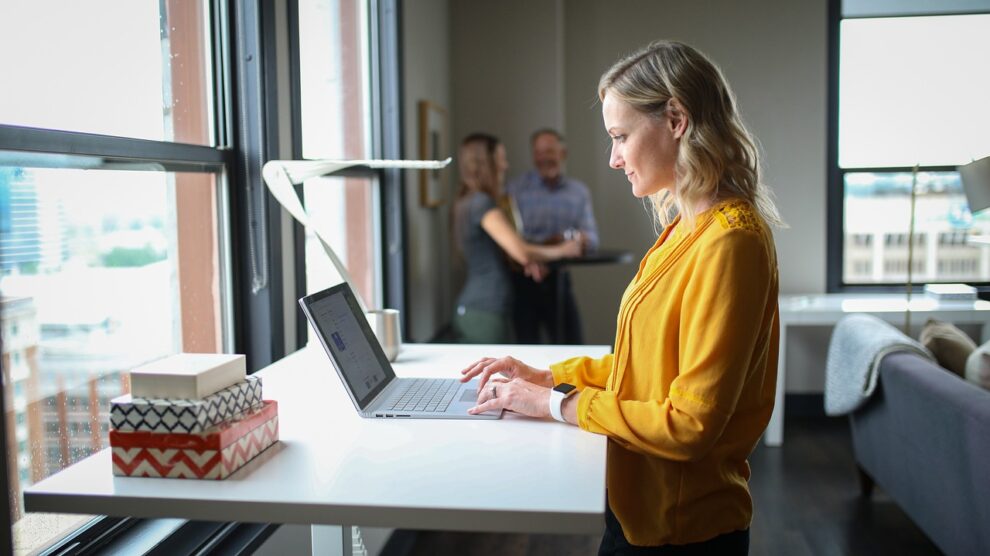Millennials are known as harbingers of change, especially in relation to workplaces. They’ve brought with them endless new trends and practices that have basically revolutionized the way we work. The following trends will show how millennials view their careers and how they are adapting to their specific needs.
Remote Work
The emergence of the internet has been driving new job trends. Nine to five jobs are becoming increasingly sparse. Now, big and middle-sized companies operate across multiple time zones, making remote work an attractive lifestyle choice for millennials who are always attached to their laptops and mobile devices. In fact, remote work has shepherded a new era of coffeehouse occupants, gig workers, and work-from-home parents.
Work-life balance
Don’t expect Millennials to work themselves into a coma at their desks. They prefer to keep a balance between their work and personal life. Anything standing in the way of their happiness is to be avoided. Today’s workplaces understand this need and offer progressive solutions such as alternative seating arrangements, flexible hours and scheduling, experiential spaces, and wellness initiatives.
Tech-driven Environment
Millennials are the tech wizards of our multigenerational workforce. They are old enough to type command lines in DOS, and also young enough to know how to use Stripe and Slack. They view technology as an opportunity to make their work easier than ever. Technology gives them access to cloud computing, time tracking apps and the like.
Flexible Workhours
Recent research stats indicate that Millennials prefer to first establish themselves before getting married. And when they do get married, they are also less likely to take time off due to fears about falling professionally behind or being unable to support themselves while on leave. The emergence of flexible work hours came about due to these concerns. Millennial parents working around child care and school schedules have driven flexible work hours into the mainstream.
Speculative Spaces
Millennials are always looking for engagement opportunities in the workplace. White-walled cubicles have become archaic. Millennials prefer experiential spaces, like a game room with a chess or foosball table where they can refuel their creativity. Hence, engaging workspaces are more attractive for Millennials.
Respectful Culture
The social revolution has hit the work environment. In the wake of movements like #MeToo and the massive backlash against hostile work environments, Millenials have started to take self-respect very seriously. They don’t ask for some respect from their superiors, they demand it. Several companies have started changing their workplace culture because of this social change. Now it’s common to seat seniors with subordinates in an open floor plan or encourage positive stances on emotional and mental health.
Automation
Technology and automation have always gone hand in hand. This is especially so in today’s millennial work environment. Whether it’s creating apps to sort email or using project cost management app for weekly tasks, millennials are taking full advantage of modern technology.
Collaborative Plans
Workplaces are a very social place. Historically, the water cooler place used to be the only real social spot. Millennials are bringing the social element back to workplaces through a demand for more collaborative activities. From Silicon Valley to Everytown, the US is opening offices where flexible workspaces and agile environments are the new norm. People working together are more likely to bond, resulting in a better attachment to their jobs and companies.
New standards of leadership
First, baby boomers are starting to retire, creating a power vacuum that can only be filled from the bottom. Secondly, Millennials have taken over the largest population in the workforce. Thirdly, they are getting older. The oldest members of the generation are entering their mid-30s and getting more experienced as the years go by. Even today they hold about 20% of all major roles. They can be considered timid when compared with the previous generation but they also hold stronger convictions. Either way, they are about to define a new generation of leadership.
They prepare for Generation Z
Though Millennials are getting older, they are also keeping lower bound to generations ahead. The definition of Generation Z varies but most demographers describe it as the generation born between the mid-90s to mid-2000s. That would make its oldest members in their early twenties, fully ready to enter the workplace for the first time. Starting from 2018, older Millennials started observing the key differences between them and the new generation. Thus they began preparing to address those differences with new approaches.
Key Takeaways
The way millennials have determined workplace trends is very evident. When a third of the workforce demands some or any of these standards from their supervisors, companies feel the need to comply on some level.
You don’t need to conform to these trends in order to cash in on the Millennial workforce. Just listen and evolve according to the needs of your workplace.





